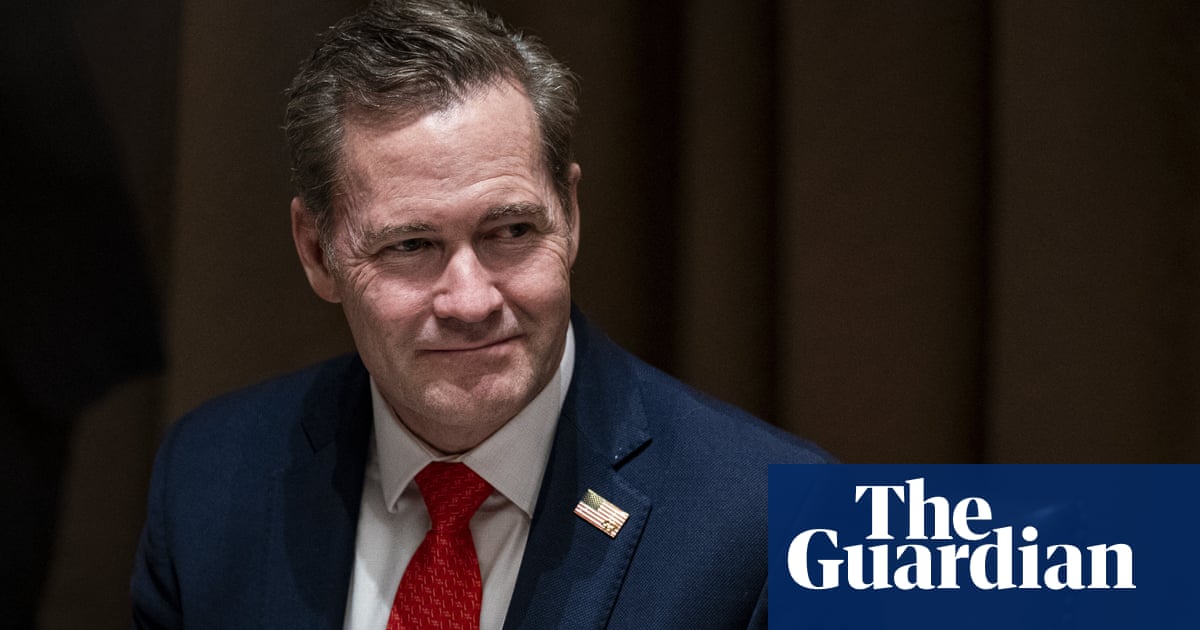Donald Trump’s national security adviser Mike Waltz and his deputy, Alex Wong, will be leaving their posts after they lost the confidence of other administration officials and found themselves without allies at the White House, according to two people familiar with the matter.
The exit of Waltz and Wong marked the conclusion of a fraught tenure. In March, Waltzinadvertently added Jeffrey Goldberg,editor-in-chief of the Atlantic, to a Signal group chat that shared sensitive information about US missile strikes in Yemen before they took place.
The president briefly considered firing Waltz over the episode, but reportedly decided he was unwilling to give the news media the satisfaction of forcing the ouster of a top cabinet official weeks into his second term. Trump was also mollified by an internal review that found Waltz’s error was a mistake.
The furore over the Signal group chat, if anything, was widely seen to have bought Waltz and Wong additional time after they had both been on shaky ground for weeks. That was in large part because of a strained working relationship with Trump’s chief of staff, Susie Wiles, and other senior officials.
In the days after the Signal group chat episode, Waltz sought advice from JD Vance and others in the vice-president’s circle about how to reset relations. Vance counseled Waltz to be more deferential to Wiles, who had pushed for him to get the job, and throw around his weight less.
But Waltz also came under fire from other corners. Even though he was cleared in the internal review into Signalgate, as it came to be known, Waltz faced pressure for being seen as a war hawk and at odds with Trump’s “America First” agenda.
That included scrutiny at a dinner that Waltz attended with Trump and some of Trump’s allies including Tucker Carlson, who has been skeptical of the adviser. And there was also a campaign to oust Waltz and Wong led by Steve Bannon and separately by the far-right activist Laura Loomer, who pushed a conspiracy that Wong had loyalties to China. Loomer weakened Waltz’s power after she went to the White House last month at Trump’s invitation and successfully pushed for Trump to fire a number of Waltz’s staffers. She also unsuccessfully advocated for Wong to be fired at the time.
But the gutting of Waltz’s staff was widely seen to have weakened his position inside Trump’s orbit. As Carlson, Bannon and Loomer separately pushed a whisper campaign that Waltz would be out before June, officials in the White House concurred that Waltz’s influence was waning.
This week, it was quietly made clear to Waltz and Wong that their time at the national security council would be coming to an end. Waltz tried to extend his tenure by attending a cabinet meeting on Wednesday but was informed of his removal on Thursday, one of the people said.
